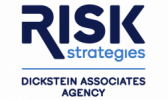A well-run condo association (HOA) will provide its owners and board members with a clear picture of the association’s financial situation. Timely and accurately maintained financial reports are useful for planning and more. Reliable financial reporting helps the board to anticipate future expenses and plan for their payment. The financial statements’ information enables the involved parties to make informed decisions.
Know and Abide New Jersey Laws for Condo Associations
Every condo association must have a set of best financial reporting practices. They are necessary to maintain the association’s fiscal responsibility. The short title for the New Jersey state law regulating condo associations is the Condominium Act. It stipulates HOA financial records must follow generally accepted accounting principles and that they are made available for inspection at reasonable times to unit owners. The law requires financial records of all receipts and expenditures with accounting for each unit setting forth any shares of common expenses or other charges due, the due dates thereof, the current balance owing, and any interest in the common surplus.
Maintain Easily Understood Budgets
HOA board members are responsible for setting the association’s budget on a monthly and annual basis. It’s vital to implement income and expense categories that are consistent, understandable, and make sense now and for the future. Unit owners and board members come and go. Having consistent rules for categorizing budget items helps new team members grasp the record-keeping system and expense allocation.
Deduct Expenses and Allocate Income Correctly
Many accounting problems can be avoided by carefully categorizing income and expenses. Mistakes can cause avoidable problems. For instance, using funds from operating expenses for a long-term project instead of tapping the reserve fund can lead to unnecessary assessments on the homeowners.
Choose the Accounting Method Best for Your Association
You can use either a cash accounting or accrual method to manage finances. A cash accounting system works like a checkbook. You enter income upon receipt and enter expenses when making payments. It is an easier system to use but does not offer the flexibility to handle complicated investments, outstanding debts, and fee structures.
In an accrual accounting system, income is recorded even when the actual money has not been received. Likewise, all earned expenses are recorded upon receipt even though they will be paid later. Balancing the books is done at the appropriate time shortly after that.
Schedule Routine Financial Reporting Analyses and Projections
Create a system to perform monthly and yearly financial analyses. Use a rolling 12-month spreadsheet to keep track of monthly income and expenses. Items that are out of the ordinary will stand out. It may be a simple thing such as large irregular expenses that occur seasonally may be billed or paid in a different month than previous. The spreadsheet makes it easy to find the answer. It will also indicate potential issues such as unpaid bills or extraordinary receivables, requiring the association management to come up with explanations.
Be Informed, Inquisitive, and Diligent
Condo association board members must not be complacent. Don’t let inexperience keep you from asking important questions. If something is confusing or doesn’t seem right, ask questions to understand the issue. Being correctly and fully informed is a right and a fiduciary responsibility. Budgeting is not an exact science. Things can happen to throw them out of whack. Usually, there are ways to account for over expenses in one category with under costs in another. In some cases, budgets need to be adjusted to the cut expenses back to account for over budgeted situations.
Get Professional Insurance Expertise
A qualified insurance professional will provide advice and insights to help condo associations make smart risk management decisions supporting the association’s financial goals. At Dickstein Associates, we offer sound risk management strategies, competitive premiums and advocate in the best interest of our clients. Our experienced team will use its collective decades of experience to review your bylaws, Master Deed and plot plans to make sure you get the best and most complete insurance package for your association’s needs.
A comprehensive insurance program will include protection for property damage losses and provide association board members with Directors & Officers (D&O) Liability insurance to insure the board’s management liability-related lawsuits as well as Crime & Fidelity insurance.
About Dickstein Associates Agency
Dickstein Associates Agency has distinguished itself as a leading provider of personal and commercial insurance in the tri-state area for over 55 years. We pride ourselves on being advocates for our clients and providing them with quality and affordable coverages. As a Trusted Choice™, Independent Insurance Agency, we partner with various carriers, allowing for flexible and unbiased coverage for each client’s unique circumstances. For more information on how you can leverage all your insurance to work best for you, and how we can secure the best insurance in the marketplace based on your specific needs, contact us today at (800) 862-6662.










